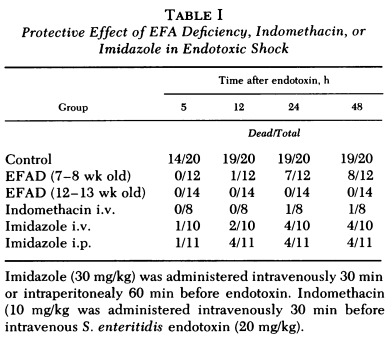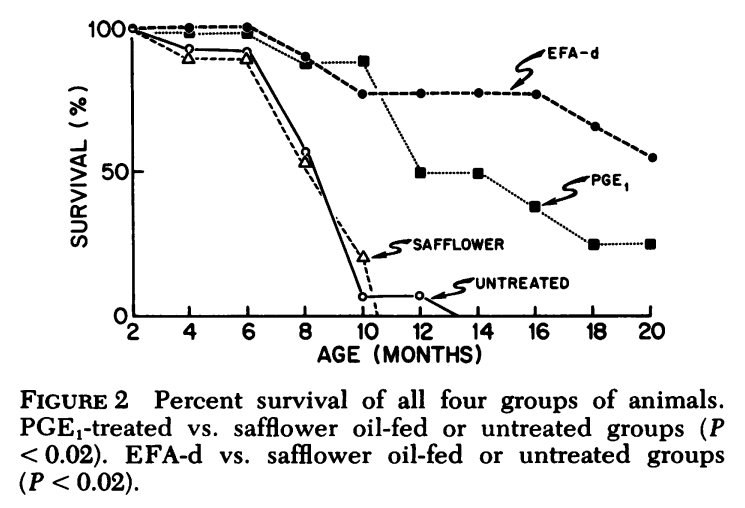Does mead acid form prostaglandins?
-
Are eicosanoids (such as prostaglandins) formed from mead acid? In other words, when you're "EFA deficient" and thus high in mead acid, are the eicosanoids formed from mead acid, or are they simply not formed at all, cause they require EFA for their formation? (cause i think that would cause you to die)
I skimmed this and I may be misunderstanding but it looks like the answer is yes, mead acid forms all the same stuff as EFA, just its own versions of those things.
https://www.ncbi.nlm.nih.gov/pmc/articles/PMC10576882/ -
I ask because if the body's innate enzymes that make eicosanoids from PUFA would only work with the EFAs and not with Mead Acid, that would be proof that the "zero dietary PUFA theory" goes against the body's intended design. But it looks like that's not the case.
-
It does mean that you're not getting away without forming eicosanoids though! Which is a good thing cause I guess you'd die without them, without inflammation.
All in all I don't agree with a very low PUFA diet. If your body just forms its own PUFA (mead acid) when dietary PUFA isn't present, then what's the point of fighting it?
I think all the benefits are from avoiding the consumption of PUFA that's already oxidized when you eat it, and that has broken down into aldehydes, which are super toxic to consume. I think the benefits of avoiding seed oil are just the benefits of avoiding aldehydes. by far the most prevalent in deep fried food, and i dont know how prevalent they actually are in unheated seed oil, or even in a fresh walnut, for example. Perhaps drizzling fresh squeezed canola oil (unheated) on your food would be fine (though unpleasant and pointless).
-
@insufferable said in Can eicosanoids be formed from mead acid?:
I skimmed this and I may be misunderstanding but it looks like the answer is yes, mead acid forms all the same stuff as EFA, just its own versions of those things.
https://www.ncbi.nlm.nih.gov/pmc/articles/PMC10576882/You're right, eicosanoids are formed from mead acid, and mead acid derivatives are different.
@insufferable said in Can eicosanoids be formed from mead acid?:
It does mean that you're not getting away without forming eicosanoids though! Which is a good thing cause I guess you'd die without them, without inflammation.
All in all I don't agree with a very low PUFA diet. If your body just forms its own PUFA (mead acid) when dietary PUFA isn't present, then what's the point of fighting it?
You basically answered in your conclusion by looking at the article you cited, Mead Acid derivatives are different versions and therefore the actions occur in a different way/intensity than "EFAs". Here is an example of rats exposed to endotoxic shock, if the type of PUFA makes no difference, why are the results so different?
Mortality of rats exposed to endotoxic shock:
EFA-deficient: 24%(in other studies that kept them on EFAD for longer it was as low as 0)
DHA: 40%
Control: 100%Other study:

Their resistance to endotoxic shock is the same reason why they are resistant to basically all autoimmune diseases, from lupus to type 1 diabetes, and inflammation. The point of limiting them in the diet is to limit the maladaptations of an organism saturated with "EFAs", with which the whole "process" is corrupted.
Type 1 diabetes:

Lupus:

Ray Peat never said anything about no eicosanoids:
Linoleic acid, linolenic acid, arachidonic acid: Their toxicity is potentially prevented by the Mead acids, and their eicosanoid derivatives, which behave very differently from the familiar prostaglandins, as far as they have been compared; can be drastically reduced by dietary changes.
-
@TexugoDoMel Great response, thank you!